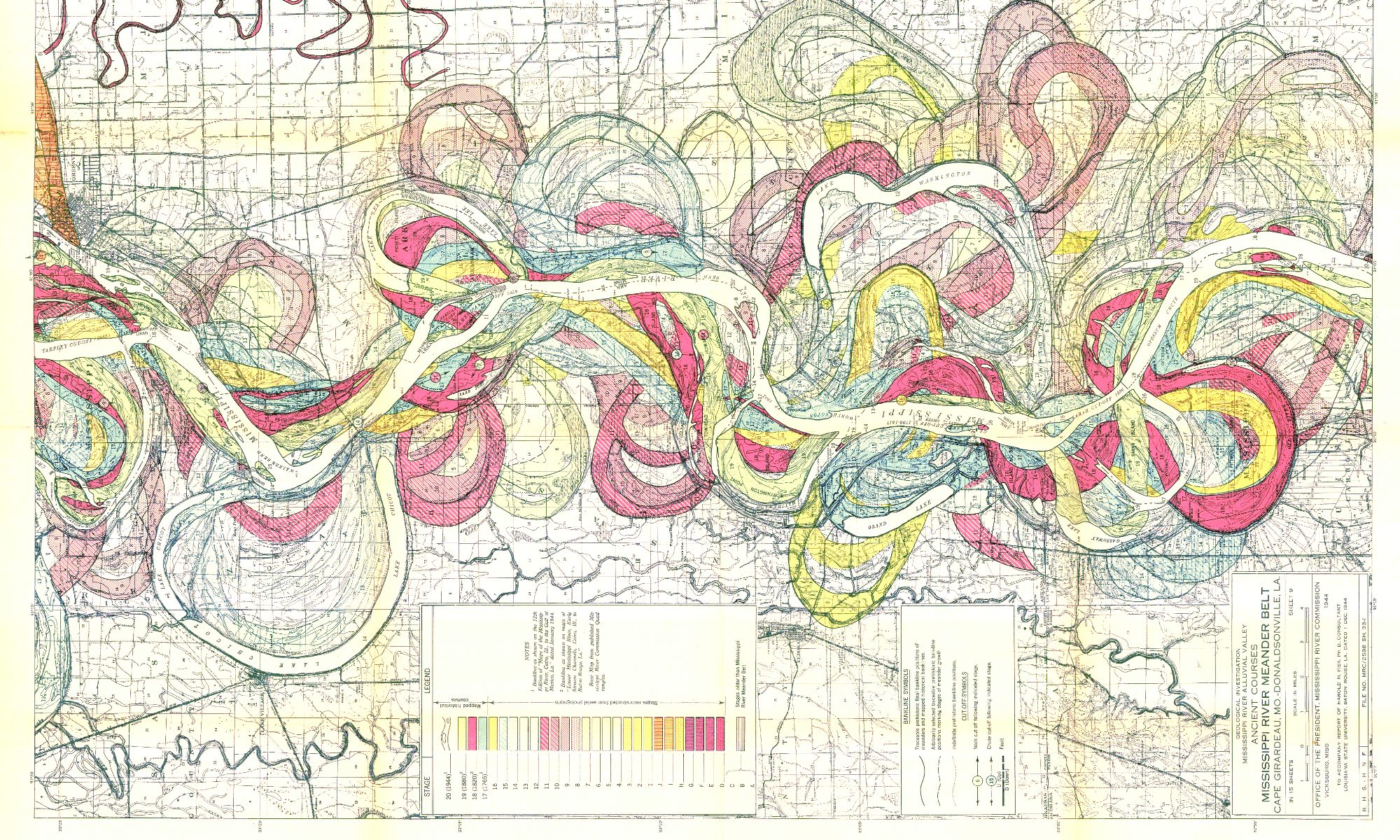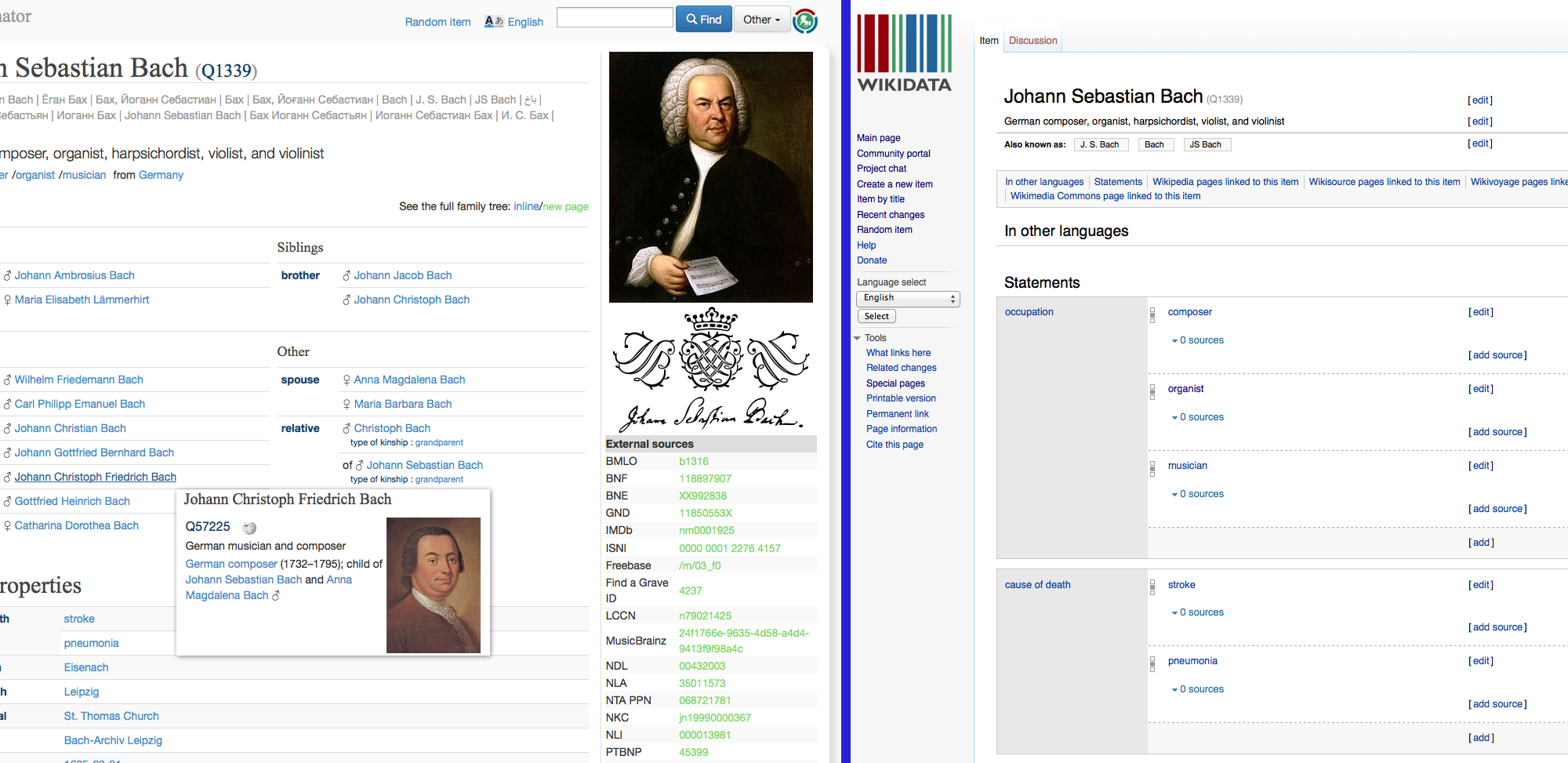The Wikibase software has been designed to serve underneath the +200 Wikipedia installations, it is offering its services in SPARQL-queries but it does not aim at people interested in the facts collected on an item of knowledge.
Magnus Manske’s Reasonator is the tool which turns Wikidata information almost into articles – in any language. The page on Q13339, Johann Sebastian Bach is, as it turns out, in many ways superior to the 200+ competing Wikipedia articles on Bach: It has one sinle source to be edited by users world wide. It shows at a single view what it has to offer – you do not crawl through well balanced sentences, which might not at all offer the information you are looking for.
But the Reasonator has its fundamental drawbacks: Technically you are on a platform that uses Wikidata information – not on the global Wikidata interface. Practically and organisation-wise you are on extraterritorial space when it comes to future developments. The Reasonator is Magnus Manske’s dream child. It is not part of the package Wikimedia will develop as the universal Wikidata front-end (because any such front-end would immediately rival the 200+ Wikipedias?)
The following thoughts aim at an “Interface” one would like to have with any Wikibase installation on whose and what technology whatsoever:
What the global “Wikibase Interface” should be able to do (and what it should avoid)
- Pages on items of knowledge (i.e. on Q-numbers of the installation) should not rival the written article (with automatically generated language statements).
- The interface should focus on the presentation of all the facts on a specific question. Get the first three entries of the list and get the complete list only if you click at more. Use the interface to get all the letters Leibniz has written, all the works composed by Bach, all the people Luther is known to have met plus dates and locations.
- An edit option leads from the specific statement on the Interface page to the specific Wikibase input section that is generating the statement.
- Users who are reading a biographical Interface page can press “edit via form” and they will be led to an input form for biographies with subsections to open. This is particularly useful on any page with fragmented and sparse information, since Interface readers will not necessarily have a clue what a Wikidata property is, and where to find it. They need inspiration of what questions they possibly could answer. See our Needed thing # 1: The technical solution that enables researchers to create input forms for the specific requirements.
- Any statement on the Interface page is referenced on page in a footnote (see Needed Thing #4: A module to state original claims (and published research)) so that users can grab the footnote and get it into the Wikipedia they are writing or into the research paper or book under their hands.
- The interface can present media and extended texts. A page on an archival document or 18th-century book must be able to offer the scans and a searchable text transcript (users who detect transcription mistakes must be able to correct the mistakes on the spot, through the interface). See one of our Illuminati-document pages for the requirement to be met.
Magnus Manske’s Reasonator is the Wikidata exploit that has taken the step into the data-driven alternative to Wikipedia articles. We should see the advantages: We leave the world of tediously constructed texts and all the confrontations these texts are bound to sparkle between want to be authors and offended readers. We get information that is actually generated in a global effort – where Wikipedia has been generating national communities so far with all their massive problems. We can aim at complete collections of facts. Do not press for “more” on a subject if you do not want to get the names of all the children Johann Sebastian Bach had – but use this source if that is what you want to know. We leave the debates of the various “notability” wars we are presently leading in or 200+ Wikipedias – the debates on what a respective “community” feels people should know, and what they feel one should not necessarily be bothered with.
We must reach the point where we see that Wikidata has actually merits of its own as a new additional source in the Wikimedia universe – and this is what Magnus Manske’s Reasonator has been doing almost in the shadow so far.
Links & More
- Magnus Manke, The Reason For It All, The Whelming. Tech, Tools, and Tribulations. http://magnusmanske.de/wordpress/?p=138 [also image source]
Published also here: https://www.wikidata.org/wiki/Wikidata:FactGrid/Needed_thing_No._3:_An_attractive_Interface_for_browsing_and_reading_Wikibase_information

